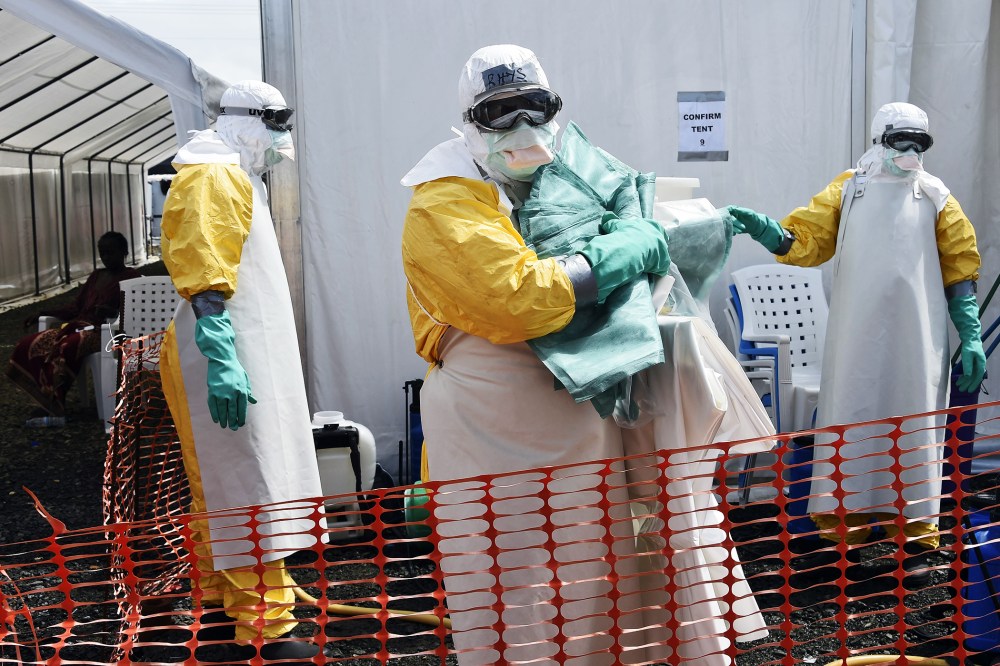Ebola has dominated headlines and nightmares in America since the arrival of missionaries infected with the virus. But the first case diagnosed in the U.S. threatened to turn that whiff of fear into full-blown Ebola hysteria.
Virus-driven worries sent airline stocks downward — causing the market to plunge 200-plus points. And in Texas, where the U.S. Centers for Disease Control and Prevention confirmed the first case of Ebola diagnosed in this country, some Dallas parents on Wednesday pulled their kids out of a school attended by one child who waspotentially exposed to the sick man.
Overreactions? According to infectious disease doctors and CDC experts: Yes, those behaviors are not at all in line with scientific knowledge of how Ebola spreads — gleaned from numerous past outbreaks of the virus in distant lands.
Ebola may be here, living inside the body of a patient now being treated in isolation at a Dallas hospital. But here are five reasons why Americans need to calm down, take a breath, take a flight, if need be — and, if it makes them feel any better, by all means, they can also wash their hands.
Could his flight put travelers at risk and trigger a U.S. outbreak?
No. That firm answer is rooted in the timing of both his illness and his travel itinerary.
The patient left Monrovia, Liberia on Sept. 19 and arrived in the U.S. on Sept. 20. He first developed symptoms on Sept. 24. On Sept. 26, he went to a Dallas hospital but was sent home. He got sicker and called an ambulance on Sept. 28 and, on that day, he was admitted to the hospital and placed in isolation.
If a person with Ebola does not yet show symptoms — which may include fever, fatigue, achiness, vomiting, bleeding and diarrhea — he cannot transmit the virus. In someone who contracts Ebola, the virus can incubate inside the body for as long 21 days before making him feel ill.
“The people on the plane are not a problem because he was not symptomatic while he was on the plane,” Dr. Anthony Fauci, director of the National Institute of Allergy and Infectious Diseases told MSNBC. CDC does not recommend that people who were on the same flights with the patient undergo monitoring.
Could people who came in contact with him after he got sick cause an outbreak?
That is very, very unlikely, Fauci said.
“We feel confident that there won’t be an outbreak,” Fauci said.
The people who were around the patient are now being identified and traced by the CDC and by the state health authorities.
“When you say contact tracing, you mean you get people, you identify them, and you observe and monitor them daily to determine if they develop symptoms,” Fauci said. “If they do, then you put them under isolation to determine if, in fact, they are infected.
“And if you do that properly, you can shut down any outbreak,” he added. “And that’s the reason why … we feel that this is able to be done because the professionals, the CDC people who are very good at this and have done it very well and successfully, are going to be able to do that contact tracing and get that, in essence, put the lid on this.”
If you are simply near a person with Ebola, can you get the virus?
No. Ebola virus doesn’t drift through the air like germs that cause measles or tuberculosis. That’s how doctors and nurses are able to safely treat people with the virus.
To become infected with Ebola, you would need to get some of the ill person’s bodily fluids — blood, semen, vomit, or sputum — into your mouth, nose, or eyes, or into your body via a cut or a needle stick. Doctors say that, as yet, there is no evidence anyone has ever been infected via sweat.











